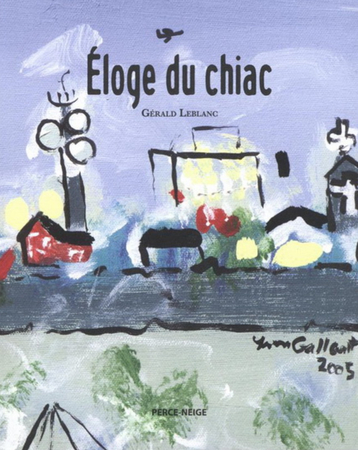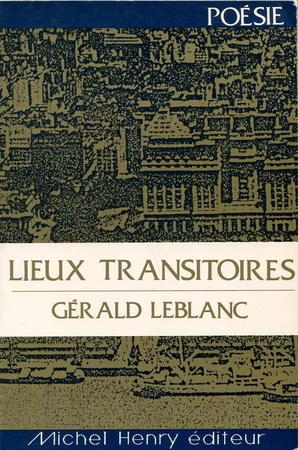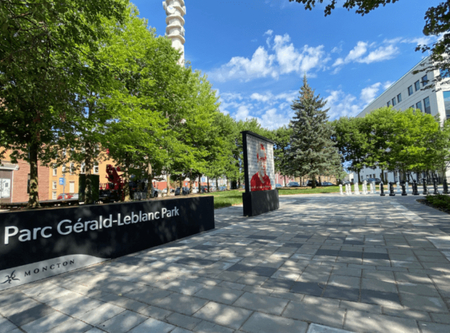Gérald Leblanc: The Poet Who Planted Words
According to many, Gérald Leblanc was a poet of youth and urbanity. On May 30, 2005, the artist succumbed to a long battle with cancer at the age of 59. Originally from Bouctouche, he influenced Acadian cultural life in numerous ways.
Acadia lost one of its most illustrious poets, for whom the search for personal roots served as a springboard for a fundamentally Acadian voice. His poetic language is that of "chiac," the dialect of southeastern New Brunswick, of which Leblanc was the undisputed champion. His poetic voice, rich and abundant, proudly asserts itself without seeking any external validation.

Author of an anthology of Acadian poetry, he stimulated other voices. His poetry poses the following question: "What is Acadian identity?" His literary work is immense, with multiple themes. In 1986, the author celebrated the absolute of love in "Lieux transitoires" and took the opportunity to affirm his homosexuality.

He led Éditions Perce-Neige in Moncton, a publishing house dedicated to new Acadian literature, from 1991 until his death. During this period, he organized numerous literary evenings and meetings. He was also one of the main lyricists for the group 1755, which made a splash in the 70s. He is credited with several Acadian song classics, some of which were covered by Marie-Jo Thériault.
This prolific and committed man of letters also shared on several occasions what inspired and shocked him. In a long correspondence (Lettres à mon ami américain 1967-2003) maintained with his cousin Joseph Olivier Roy, an American teacher of Acadian origin, comprising 161 letters written over 36 years, he shared his interest in literature and his personal evolution alongside that of Acadia over the years.
He also addresses elements that reveal much about his personality: "Alcoholics, whores, religious fanatics, homosexuals, etc. I have very, very vicious blood flowing through my veins; I have a heritage full of passion, hatred, debauchery, and sin (note that I do not say LOVE, finally, funny race)."
Leblanc states that he has "always loved writing letters" and that Roy was just one among his many correspondents of that time: " […] about fifteen people, ten 'Gay boys,' one lesbian, a few others of these 'normal' beings over the last ten years, if we collected all my correspondence, there would be enough to fill at least 2,000 volumes."
Rodrigue Jean's feature-length documentary "L’extrême frontière" (2006) at the NFB celebrates poet Gérald Leblanc. Combining wandering and belonging, this child of the Beat Generation lived far from all taboos and propelled Acadia into modernity. The film was released a year after the poet's death.
In 2020, at the initiative of two university professors, the City of Moncton inaugurated a park now bearing his name right in front of the city hall.

